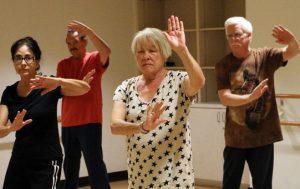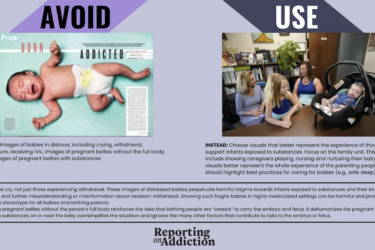
In the face of sky-rocketing rates of chronic disease and addiction, some health care leaders are searching beyond pills and procedures for solutions to America’s health care crisis.
They are turning toward integrative health, a field that combines conventional Western medicine with self-care coaching and complementary therapies such as meditation and acupuncture.
“We do not have a chronic disease model that works. That is why we are in a crisis in health care,” said physician Wayne B. Jonas, speaking at the panel “Newest Efforts in Integrative Health” during Health Journalism 2018.
With its narrow focus on medications and surgical treatments, Western medicine has tended to overlook the significance of broader lifestyle, environment, social and personal factors in shaping health outcomes, said Jonas, who serves as executive director of integrative health programs at the Samueli Foundation, a California-based philanthropy.
The nation’s health care system needs to “widen its lens to address the underlying determinants of health,” noted Jonas, the author of a 2018 book, “How Healing Works.” Jonas said his work with patients coping with chronic pain and post-traumatic stress syndrome (PTSD) in a military hospital near Washington, D.C., helped convince him that pain mismanagement is driving the nation’s epidemic of opioid addiction.
Jonas said that a growing body of research supports the use of complementary approaches such as yoga, acupuncture and nutritional counseling for the treatment of conditions such as back pain, chronic pain and chronic disease and that insurers are increasingly willing to pay for such services.
“Integrative health care is about the merger of what we do now and evidence-based complementary medicine and self-care,” said Jonas.
This kind of thinking is catching on at the Veterans Health Administration (VHA) which cares for 10 million military veterans. Facilities overseen by the U.S. Department of Veterans Affairs (VA) are beginning to integrate therapies, such as meditation, tai chi and yoga, into routine care for post-traumatic stress disorder (PTSD), chronic pain, depression and other conditions, according to panelist Roberta Lee, a physician and clinical director for the Whole Health program for the Southern Arizona VA Healthcare System in Tucson.
“We are moving away from pills and procedures,” said Lee, with patients being offered new alternatives and support. Under the VA’s Whole Health model, Lee explained, health coaches help veterans develop and follow personal health plans that build not just upon their medical histories but upon complementary therapies, life stories, values and belief systems.
The program is tracking patient-centered approach for effectiveness over time, Lee said. “Whole Health is an approach to health care that empowers and equips people to take charge of their health and well-being and live life to the fullest.”
Panelist and physician Esther Sternberg who directs the Institute on Place and Wellbeing at the University of Arizona, admitted she came to the field of integrative health skeptical at first considering it “flaky, chi-chi, fu-fu California kind of stuff.’’
“I didn’t think stress could make you sick or belief could make you well until I went with a neighbor to a cottage in Crete and healed,” Sternberg said.
Sternberg, who wrote about her journey in the 2009 book “Healing Spaces: The Science of Place and Well-Being,” said what she learned helped her to manage her arthritis. The experience also deepened her resolve as a researcher to better understand how determinants such as environment and stress contribute to health and disease.
New technologies, including wearable devices capable of measuring biomarkers in sweat, are expected to reveal more about the effectiveness of complementary therapies in promoting health and healing, said Sternberg, before inviting the panel audience to pause, sit up straight, and to take a low, slow breath.
“Exercise, tai chi, yoga, prayer; they all slow down the hormonal and neuronal stress response,” she explained.
To see discussion of the panel on Twitter, see #AHCJintegrative. For additional integrative health resources, check out this new tip sheet.






